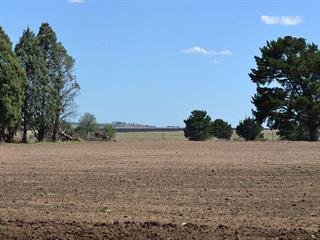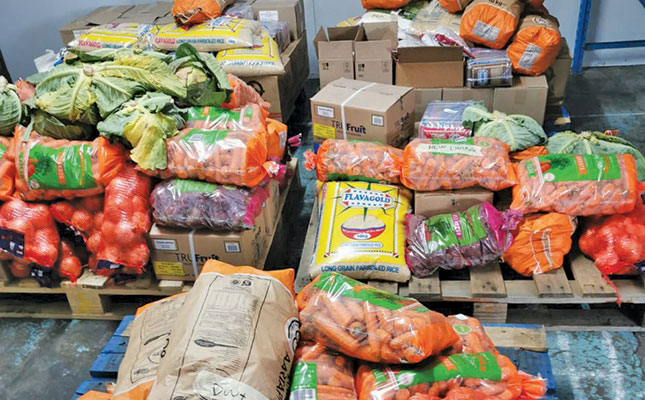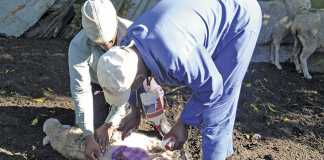
In two years, Free State farmer Mojala Mosoeu will know whether giving up his small-scale feedlot business outside Vredefort to farm as a land reform beneficiary near Heilbron was a good decision. In 2016, he will be assessed by the provincial department of land reform, based in Bloemfontein, to determine if he has made a success of his farming operation. This is despite the same department deciding to cut the financial support Mojala relies on to pay his two workers and buy inputs such as vaccines and wire fences.
“I don’t know how I’ll continue to farm,” he says in his office on the farm. Behind him hangs a 2014 DAFF-ARC National Emerging Beef Cattle Farmer of the Year certificate. It is given to top performers from the capacity-building scheme for emerging farmers Kaonafatso ya Dikgomo, launched by the department of agriculture in 2007.
Humble beginnings
Mojala (51) started farming with cattle on a small-scale feedlot in 1998 on 37ha leased from the municipality outside Vredefort, and soon expanded his herd to about 80 Holsteins and Bonsmaras. In 2011, as part of the government’s land reform programme, he obtained a five-year lease on the 640ha farm Tothiertoe on the road between Heilbron and Petrus Steyn. It was time, he believed, to give up his feedlot business and aim as high as he could.
Currently, he runs 100 Dohne Merino sheep, 126 commercial Bonsmara cows and four Bonsmara bulls. In addition, he has a fine Brahman bull, bought at an auction in December 2012 for R28 500 from the Gossayn Brothers’ commercial stud when it was nine months old.
Last year, the calving
rate of Mojala’s cows improved to 90%, from 80% in 2012. “I only keep cows that deliver a calf every year,” he says. “Those that don’t calve are culled and slaughtered.” He has so far – over two calving seasons – achieved an average inter-calving period of 365 days and replaced about 15 cows. The average calving weight – for bull calves and heifers – is 35kg, while the average weaning weight is about 230kg.
Shearing sheep
Mojala has planted a mix of Smutsfinger and tef as pasture for his cattle and sheep. He only buys registered bulls and relies on his sheep for cash flow. He recently sold 12 slaughter lambs at the age of six months in Heilbron; another 20 are ready to be marketed. Mojala sheared for the first time this year, the wool from 52 sheep earning him a BKB wool cheque of around R7 000. He plans to shear the entire flock next year, having chosen Dohne Merino for both meat and wool production.
With the support he received from government under the recapitalisation programme, Mojala was able to buy a tractor and bakkie and repair the house and some of the fences on the farm. He is also repairing the farm dams – Tothiertoe
had no water when he arrived just over two years ago. In addition, Mojala received cash from the government to cover his day-to-day operations, notably to pay his workers. The income from heifers and sheep sold was used to buy more sheep and cover his family’s needs.

Mojala Mosoeu and his wife Jacobeth.
No more support
“The minister [of land reform] doesn’t know what’s happening,” says Mojala. “In August, five of us emerging farmers were told the government would no longer support us.” Mojala’s farming operation will be appraised when his five-year lease runs out. At this stage, it appears that the government will decide whether he can continue farming on the land or whether another land reform beneficiary should take over.
If the report is positive, Mojala will have the opportunity to lease the land for another 30 years, with the option to buy after five years if he is successful according to the provincial department’s criteria. The problem is that Mojala doesn’t know what these requirements are.
With no collateral and only a short-term lease agreement, he finds it difficult to access finance from a commercial bank to expand his operation. This uncertainty of tenure makes it impossible for him to plan for the long term, he explains.
He is also worried about what will happen to his wife and children should he die, as it is likely they will be forced to leave the farm. “Government wants black people to farm,” he laments. “But how?”
Uncertainty
Support from extension officers and state vets is also lacking, says Mojala. The local extension officer visits him only twice a year, while the closest state vet is in Sasolburg. Currently, a local commercial farmer, not the extension officer, is helping him to find a market for his cattle.
Mojala has also had discussions with the Sernick feedlot, which supports emerging farmers. It allows them to buy feed on credit and sell their weaners to the feedlot. The cost of the feed is then subtracted from their proceeds. Alluding to the lack of tenure and uncertainty, Mojala speaks plainly:
“I did not come to visit here. I came here to stay.”
The Department of Rural Development and Land Reform did not respond to requests from Farmer’s Weekly for comment.
Phone Mojala Mosoeu on 072 475 7143.












